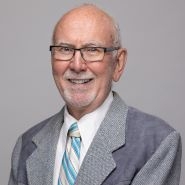the firm's post-grant practitioners are some of the most experienced in the country.
Technologies







Fast Facts
Law Firm

Headquartered within steps of the USPTO with an affiliate office in Tokyo, Oblon is one of the largest law firms in the United States focused exclusively on intellectual property law.
History

1968
Norman Oblon with Stanley Fisher and Marvin Spivak launched what was to become Oblon, McClelland, Maier & Neustadt, LLP, one of the nation's leading full-service intellectual property law firms.
Global Reach

Outside the US, we service companies based in Japan, France, Germany, Italy, Saudi Arabia, and farther corners of the world. Our culturally aware attorneys speak many languages, including Japanese, French, German, Mandarin, Korean, Russian, Arabic, Farsi, Chinese.
ACCOLADES

Oblon's professionals provide industry-leading IP legal services to many of the world's most admired innovators and brands.
Career

From the minute you walk through our doors, you'll become a valuable part of a team that fosters a culture of innovation, client service and collegiality.
GET In Touch

Patent Forms

The United States Patent and Trademark Office (USPTO) issued final rules implementing the inventor's oath or declaration provisions of the America Invents Act (AIA) on August 14, 2012.
Our Blogs
LATEST NEWS
PUBLICATIONS
Les Nouvelles - Licensing Executives Society International (LESI)
Events
May 20, 2025 at 13:00 JST, Tokyo Japan
November 11, 2024
October 9-10, 2024 in Tokyo and Osaka
Blogs

LIFE SCIENCES
IP BLOG
Read the blog

AI Patent
BLOG
Read the blog




 Counseling & Strategic Advice
Counseling & Strategic Advice IP Transactions
IP Transactions Litigation
Litigation PTAB Proceedings
PTAB Proceedings Technology Transfer
Technology Transfer Trademark & Designs
Trademark & Designs U.S. Patent Procurement (Application Drafting & Prosecution)
U.S. Patent Procurement (Application Drafting & Prosecution)
